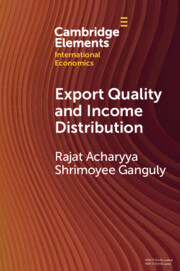Because of high competition from Chinese apple juice processors, the United States imposed an antidumping duty on apple juice imports from China to protect the domestic processors. This trade policy benefited U.S. processors but negatively impacted Chinese processors as well as consumers in the United States. Because of the economic reforms, foreign direct investment, and technological spillover, Chinese apple processors have increased their productivity. Under oligopolistic competition with endogenous firm entry and exit, this article analyzes how the changes in U.S. tariff policy and Chinese productivity impact the market structure in the United States and China, as well as prices, quantities, and U.S. and Chinese welfare. Trade liberalization and an increase in Chinese productivity help U.S. consumers and Chinese processors. However, U.S. tariff removal adversely affects U.S. apple juice processors.

